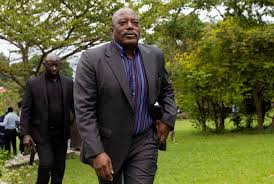
The Kinshasa High Military Court is set to deliver its long-anticipated verdict on Tuesday in the trial of former President Joseph Kabila, who faces charges of treason, war crimes, insurrection, and conspiracy.
Originally scheduled for September 12, the ruling was postponed after civil parties—including the DRC government and the provinces of Ituri, North Kivu, and South Kivu—requested that proceedings resume.
The trial has drawn intense national and international attention, raising questions about justice, accountability, and political stability in the country.
During closing arguments, Attorney General Lucien René Likulia called for the death penalty for Kabila.
The prosecution accuses him of orchestrating violence by the AFC/M23 rebel groups in eastern Congo, including assassinations, rapes, forced deportations, and widespread destruction.
Additional requests include a 20-year prison sentence for condoning war crimes, 15 years for conspiracy, the immediate freezing of his assets, and an order for him to cover legal costs.
Civil parties are demanding more than $24 billion in reparations for damages inflicted on the state.
Kabila, who has denied any involvement with the M23, left the country in 2023 and did not attend the hearings.
He returned to the DRC in May 2025, visiting Goma and presenting a 12-point program aimed at restoring state authority and ending violence in the east.
His trial was made possible after the Senate lifted his parliamentary immunity earlier this year.
The proceedings have been closely watched across the continent and internationally. Supporters of Kabila denounce the trial as politically motivated, while critics argue that it represents a crucial step toward accountability for abuses committed during his tenure.
Observers say Tuesday’s verdict could mark a historic moment for the DRC’s judicial system, setting a precedent for the prosecution of former heads of state.
As the nation awaits the court’s decision, tension remains high in Kinshasa and in eastern provinces, where memories of past conflicts continue to shape public sentiment.



